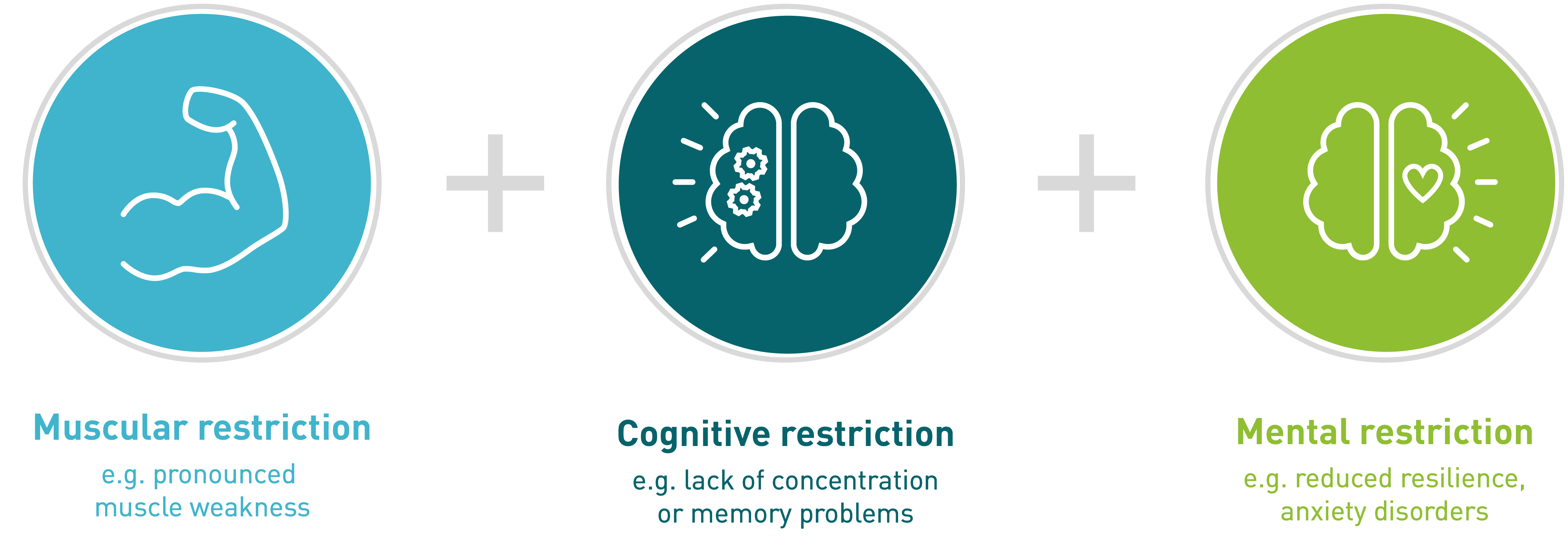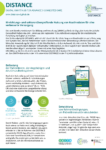
About DISTANCE
Targeted Prevention and Therapy after Intensive Medical Treatment
Medical practices and regional hospitals are central facilities for the medical care of patients. However, large amounts of medical data from patient care are also generated in these settings outside research-oriented hospitals. In the Digital Hub DISTANCE, interoperable data exchange is extended to medical facilities providing regional care in order to improve the quality of treatment in the long term. For the first time, structured, longitudinal patient data will be digitally recorded during and after intensive care treatment.
In this way, artificial intelligence can be used to identify risks and deterioration trends at an early stage in order to support research into new treatment and therapy options for former intensive care patients. Therefore, DISTANCE uses the infrastructure of the Medical Informatics Initiative (MII). The technical concept will be transferred to regional hospitals and physician networks and tested in a nationwide roll-out.

Digital Hub DISTANCE
Development of scalable, cross-sector and interoperable infrastructures between regional healthcare providers and clinical research
Development of the PICOS App for critical care follow-up, taking into account the needs of regional providers and patients
Support of patient self-care by providing an overview of their mental and physical condition with the PICOS App
Close cooperation with 12 regional care facilities and seven other partners from science and research under the leadership of the University Hospital RWTH Aachen
The goal: improved post-ICU care
In the weeks and months following prolonged intensive care treatment, such as life-threatening respiratory or circulatory failure, many outpatients suffer from psychological and physical distress known as Post Intensive Care Syndrome (PICS). After discharge from the hospital, this often leads to a significant loss of quality of life. Patients face problems in their daily lives due to persistent mental, cognitive, physical and/or psychological limitations and are sometimes unable to care for themselves.
In the Digital Hub DISTANCE, former intensive care patients receive digital support through the PICOS App. With the help of the PICOS App, patients receive regular information about their health status and are supported in their daily medical self-care. The app collects extensive information on the mental and physical well-being of patients, generating large amounts of data. Thanks to this database, critical illnesses can be better assessed in the future and the quality of treatment can be optimized.
Symptoms of Post Intensive Care Syndrome (PICS)

Improving the quality of care through cross-sector data exchange
Through the increased networking of university hospitals, regional hospitals and private physicians, cross-sector patient data is collected at various points in the treatment process. DISTANCE compiles the result data in an anonymized form and makes them available for secondary data analysis and research purposes. This provides a structured overview of different electronic patient records from all relevant areas of healthcare.
Using data management and data modeling methods, previously unknown correlations and dependencies between different diseases can be identified. By using artificial intelligence to process the collected data, treatment processes and clinical conditions can be optimized in the future.
The Digital Hub DISTANCE is funded by the German Federal Ministry of Research, Technology and Space (BMFTR) from 01 June 2021 to 30 June 2025 with 10.9 million euros. The project will be extended until 30 September 2025 on a cost-neutral basis and continued as DISTANCE:PRO from 01 Oktober 2025.
About the new Digital Progress Hubs Health
DISTANCE is one of the six “Digital Hubs: Advances in Research and Health Care” that were launched in mid-2021. The German Federal Ministry of Research, Technology and Space (BMFTR) is providing around 50 million euros in funding until 2025. The task of the Digital Hubs is to incorporate the pioneering work of the Medical Informatics Initiative (MII) on the digitalization in medicine from university hospitals to all areas of the healthcare system. The starting point for a hub is the Data Integration Center of a university hospital. These centers have been established as IT infrastructures at almost all university hospitals as part of the Medical Informatics Initiative. A Data Integration Center networks with regional partners, including hospitals, physician practices, rehabilitation and nursing facilities, and emergency services. Research institutions and health insurance companies are also partners of the Hubs.


